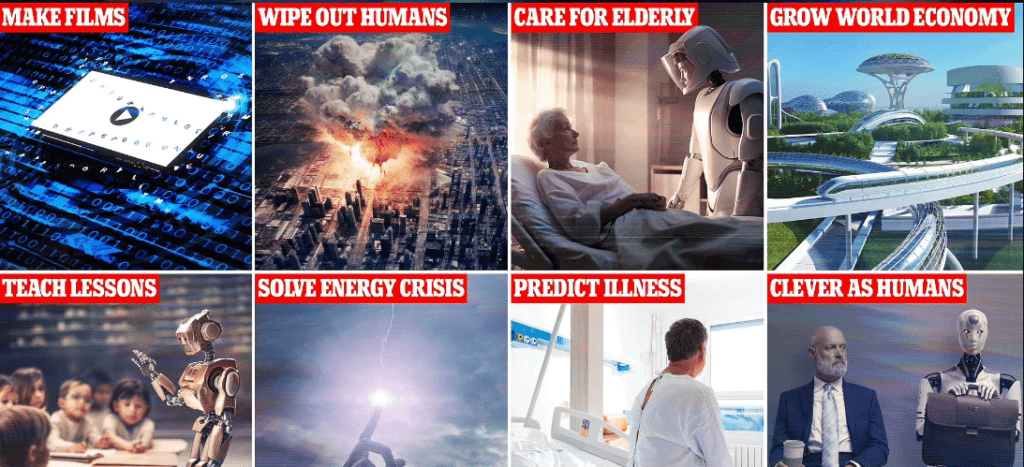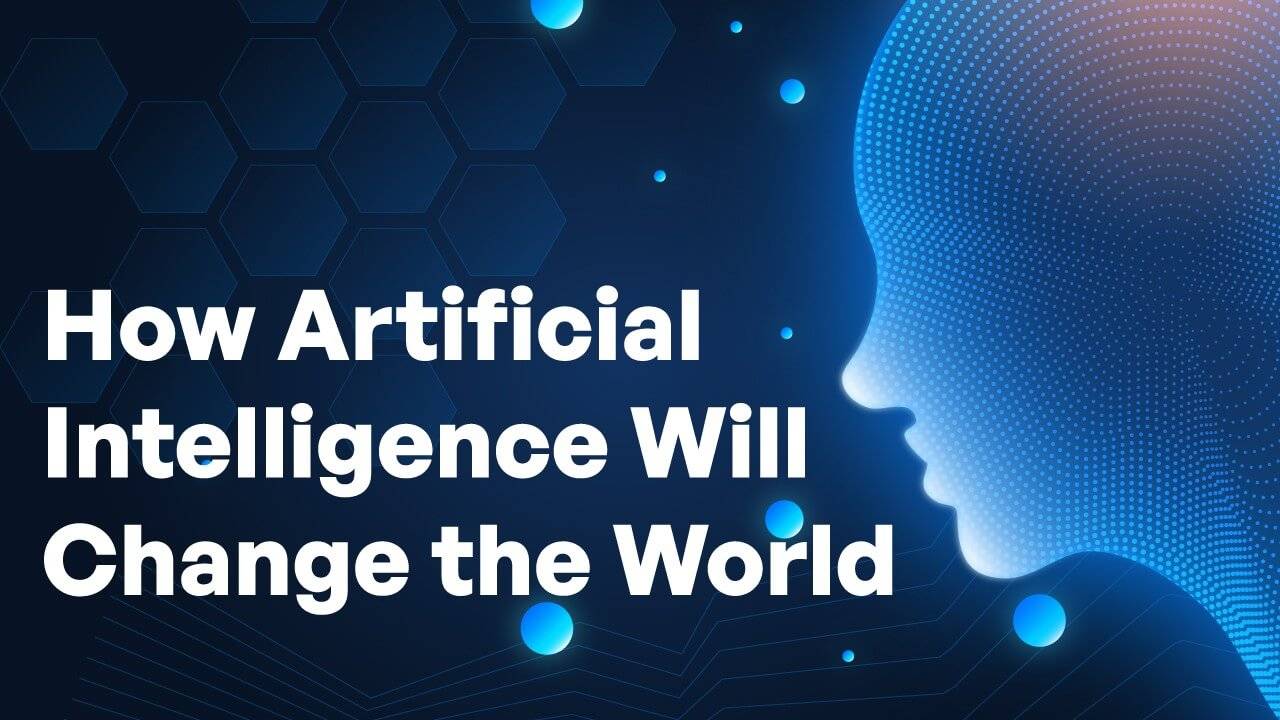Artificial Intelligence (AI) has become an integral part of our lives, revolutionizing various industries and transforming the way we live, work, and interact with technology. From self-driving cars to personalized recommendations, AI has made significant advancements and continues to shape our future. In this article, we will explore how AI will have changed the world by delving into its impact on different sectors and envisioning the possibilities that lie ahead.
1. Introduction to AI
Artificial Intelligence refers to the development of computer systems that can perform tasks that typically require human intelligence. These systems are designed to learn, reason, and make decisions based on vast amounts of data. AI encompasses various subfields such as machine learning, natural language processing, computer vision, and robotics.
2. AI in Healthcare
AI has immense potential in healthcare, revolutionizing diagnosis, treatment, and patient care. Machine learning algorithms can analyze medical images, assisting radiologists in detecting abnormalities with greater accuracy. AI-powered chatbots can provide immediate support and guidance to patients, reducing the burden on healthcare professionals. Moreover, predictive analytics can help identify potential health risks and enable preventive interventions.
3. AI in Transportation
The transportation industry has witnessed remarkable transformations with the introduction of AI. Autonomous vehicles have the potential to make transportation safer, more efficient, and environmentally friendly. AI algorithms enable vehicles to perceive their surroundings, make decisions, and navigate through complex traffic conditions. This technology holds the promise of reducing accidents, traffic congestion, and carbon emissions.
4. AI in Education
AI is reshaping the landscape of education by providing personalized learning experiences. Intelligent tutoring systems can adapt to individual students’ needs, offering tailored instruction and feedback. AI-powered tools also facilitate automated grading, freeing up teachers’ time for more meaningful interactions with students. Additionally, virtual reality and augmented reality technologies enhance experiential learning, making education more engaging and immersive.
5. AI in Finance
The financial sector has embraced AI to streamline operations, improve risk management, and enhance customer experiences. Machine learning algorithms can analyze vast amounts of financial data to detect patterns and make accurate predictions. AI-powered chatbots assist customers with inquiries and provide personalized financial advice. Moreover, fraud detection systems powered by AI can identify suspicious transactions in real-time, bolstering security.
6. AI in Entertainment
AI has revolutionized the entertainment industry, transforming the way content is created, distributed, and consumed. Recommendation algorithms powered by AI suggest personalized movies, music, and books based on individual preferences. Virtual reality and augmented reality technologies offer immersive gaming experiences. Furthermore, AI-driven content creation tools help artists and filmmakers in generating innovative and captivating content.
7. AI in Manufacturing
AI has greatly impacted the manufacturing sector, driving automation and efficiency. Intelligent robots and cobots (collaborative robots) can perform repetitive tasks with precision and speed, improving productivity. AI-powered predictive maintenance systems can identify machinery issues before they occur, minimizing downtime. Additionally, AI-enabled supply chain management optimizes inventory, logistics, and demand forecasting.
8. AI in Agriculture
AI is transforming agriculture by enabling precision farming and optimizing crop yields. Drones equipped with AI algorithms can monitor crops, detect diseases, and assess soil conditions. Machine learning models provide insights for optimal planting, irrigation, and pest control. AI-powered agricultural robots assist in tasks such as harvesting and weeding, increasing efficiency and reducing labor costs.
9. AI in Communication
AI has revolutionized communication by enabling natural language processing and translation capabilities. Voice assistants like Siri, Alexa, and Google Assistant have become commonplace, offering hands-free information retrieval and smart home control. AI-powered language translation tools break down language barriers, facilitating global communication and fostering cross-cultural understanding.

10. AI in Environmental Conservation
AI plays a crucial role in addressing environmental challenges. Machine learning models can analyze large datasets to predict climate patterns and improve weather forecasting. AI-powered sensors and IoT devices help monitor air quality, water resources, and wildlife habitats. By harnessing AI’s capabilities, we can make more informed decisions and implement sustainable practices for a greener future.
11. AI in Cybersecurity
AI is instrumental in combating cyber threats by identifying and mitigating potential risks. Machine learning algorithms analyze network traffic patterns, detect anomalies, and prevent cyberattacks in real-time. AI-powered systems can also improve user authentication and secure sensitive data, safeguarding individuals, businesses, and critical infrastructure from malicious actors.
12. AI in Customer Service
AI has transformed customer service by providing efficient and personalized interactions. Chatbots equipped with natural language processing capabilities can handle customer inquiries and provide immediate assistance, enhancing user experiences. AI-powered sentiment analysis tools analyze customer feedback, enabling organizations to gain valuable insights and improve their products or services.
13. AI in Personal Assistants
Personal assistants powered by AI have become an integral part of our daily lives. Virtual assistants like Apple’s Siri, Amazon’s Alexa, and Google Assistant can perform tasks, answer questions, and provide information on a wide range of topics. These AI-driven personal assistants streamline our daily routines, making tasks more convenient and efficient.
14. Ethical Considerations of AI
As AI continues to advance, it raises important ethical considerations. The responsible development and deployment of AI systems are crucial to ensure fairness, transparency, and accountability. Ethical frameworks and regulations need to be in place to address issues such as bias in algorithms, privacy concerns, and the impact of AI on employment.
Conclusion
Artificial Intelligence has the potential to transform every aspect of our lives. From healthcare and transportation to education and entertainment, AI is revolutionizing industries and offering new possibilities. However, it is essential to navigate the ethical challenges and ensure that AI is developed and utilized for the benefit of humanity. With responsible and innovative implementation, AI will continue to shape the world, making it smarter, more efficient, and inclusive.
I am Komal Hatwaani, aims to provide readers with informative and engaging content that covers everything from technology and business to entertainment and lifestyle. This website dedicated to delivering high-quality content that informs, entertains, and inspires our readers.
Join us on our journey as we continue to explore the ever-evolving landscape of news and information, providing you with valuable insights and perspectives that enrich your digital experience.
